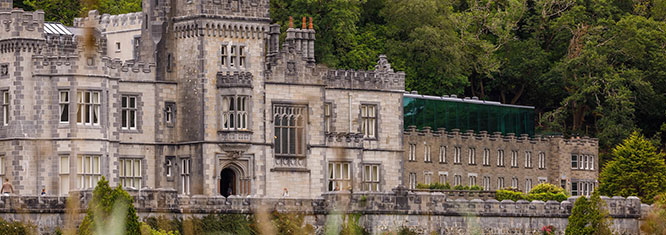Leadership, Mission and Ethos: Journeying Together in St Dympana’s PS, Dromore, Co Tyrone
Abstract
Gerald Grace has repeatedly drawn attention to the need to develop a greater empirical base of research in Catholic education in Britain, Ireland and elsewhere. He acknowledges that excellent and distinctive work is being done in many Catholic schools. He is concerned, however, that insufficient empirical research into this work may be disadvantaging Catholic education in the eyes of both government and academia, since they so prioritise empirical categories of reporting. Our project seeks to respond to Professor Grace’s invitation and to do so in a way which, following Tom O'Donoghue (2018), utilises some ground-breaking new empirical research methodologies.
This short presentation will focus on our ongoing efforts to identify, through empirical research, what it means to contribute to the mission and ethos of a Catholic primary school, by focussing on leadership in the context of one case study school, St Dympna's PS, Dromore, Co Tyrone. St Dympna’s PS was a purposive sample choice based on its outstanding ETI inspection reports and the researchers’ familiarity with the school’s exceptional reputation through our partnership in Initial Teacher Education.
Taking cognisance of O’Donoghue’s work, our research adopts a participatory and collaborative approach, which uses dialogue as a tool for seeking to understand what it is that makes St Dympna’s distinctive in its mission and service as a Catholic primary school. In this short presentation, we will reflect on our use of a ‘walking and talking’ methodology as participants and researchers who journeyed together to encounter St Dympna's as a Catholic place of and for learning.
As researchers we were keen to find out about the kind of place St Dympna’s is and asked participants to reflect on their experiences of working in the school, what it means to them and what they value most about their role and contribution. Using questions agreed in advance, walking and taking afforded a unique opportunity to capture data relating to perceptions, emotions and personal viewpoints. In this presentation we reflect on our experiences of using this methodology and outline our preliminary findings in relation to what motivates, inspires and sustains the principal, in particular, in her role as she strives to share a distinctive vision, ethos and mission for St Dympna's. We look too at the extent to which those members of the school community with whom we journeyed also felt called to lead by example, serving as role models for others.
O'DONOGHUE, Tom. The Experience of Being a Lay Teacher in Catholic Schools: An Approach for Investigating the History of an Under-researched Field. Espacio, Tiempo y Educación, [S.l.], v. 5, n. 2, p. 163-178, July 2018. ISSN 2340-7263. Available at: <https://www.espaciotiempoyeducacion.com/ojs/index.php/ete/article/view/182>. Date accessed: 02 mar. 2020. doi:https://doi.org/10.14516/ete.182.
Leadership, Mission and Ethos: Journeying Together in St Dympana’s PS, Dromore, Co Tyrone
Gerald Grace has repeatedly drawn attention to the need to develop a greater empirical base of research in Catholic education in Britain, Ireland and elsewhere. He acknowledges that excellent and distinctive work is being done in many Catholic schools. He is concerned, however, that insufficient empirical research into this work may be disadvantaging Catholic education in the eyes of both government and academia, since they so prioritise empirical categories of reporting. Our project seeks to respond to Professor Grace’s invitation and to do so in a way which, following Tom O'Donoghue (2018), utilises some ground-breaking new empirical research methodologies.
This short presentation will focus on our ongoing efforts to identify, through empirical research, what it means to contribute to the mission and ethos of a Catholic primary school, by focussing on leadership in the context of one case study school, St Dympna's PS, Dromore, Co Tyrone. St Dympna’s PS was a purposive sample choice based on its outstanding ETI inspection reports and the researchers’ familiarity with the school’s exceptional reputation through our partnership in Initial Teacher Education.
Taking cognisance of O’Donoghue’s work, our research adopts a participatory and collaborative approach, which uses dialogue as a tool for seeking to understand what it is that makes St Dympna’s distinctive in its mission and service as a Catholic primary school. In this short presentation, we will reflect on our use of a ‘walking and talking’ methodology as participants and researchers who journeyed together to encounter St Dympna's as a Catholic place of and for learning.
As researchers we were keen to find out about the kind of place St Dympna’s is and asked participants to reflect on their experiences of working in the school, what it means to them and what they value most about their role and contribution. Using questions agreed in advance, walking and taking afforded a unique opportunity to capture data relating to perceptions, emotions and personal viewpoints. In this presentation we reflect on our experiences of using this methodology and outline our preliminary findings in relation to what motivates, inspires and sustains the principal, in particular, in her role as she strives to share a distinctive vision, ethos and mission for St Dympna's. We look too at the extent to which those members of the school community with whom we journeyed also felt called to lead by example, serving as role models for others.
O'DONOGHUE, Tom. The Experience of Being a Lay Teacher in Catholic Schools: An Approach for Investigating the History of an Under-researched Field. Espacio, Tiempo y Educación, [S.l.], v. 5, n. 2, p. 163-178, July 2018. ISSN 2340-7263. Available at: <https://www.espaciotiempoyeducacion.com/ojs/index.php/ete/article/view/182>. Date accessed: 02 mar. 2020. doi:https://doi.org/10.14516/ete.182.


